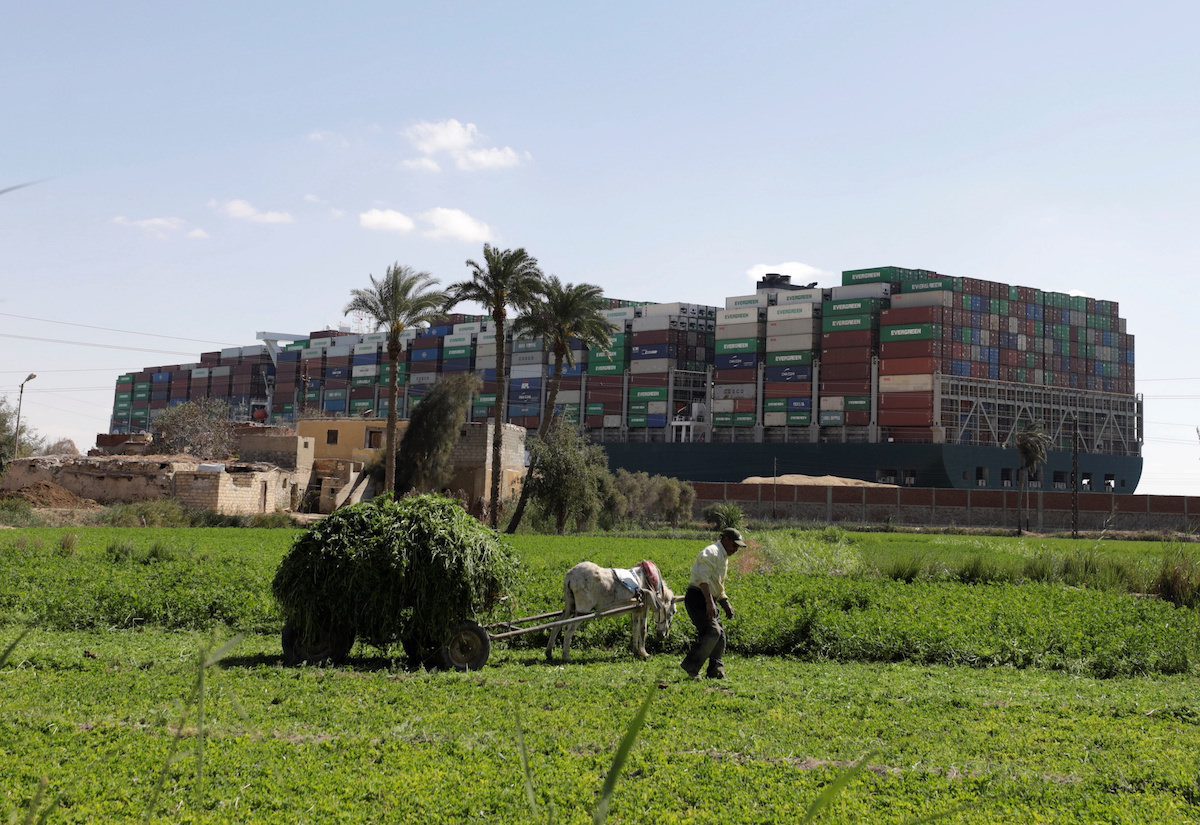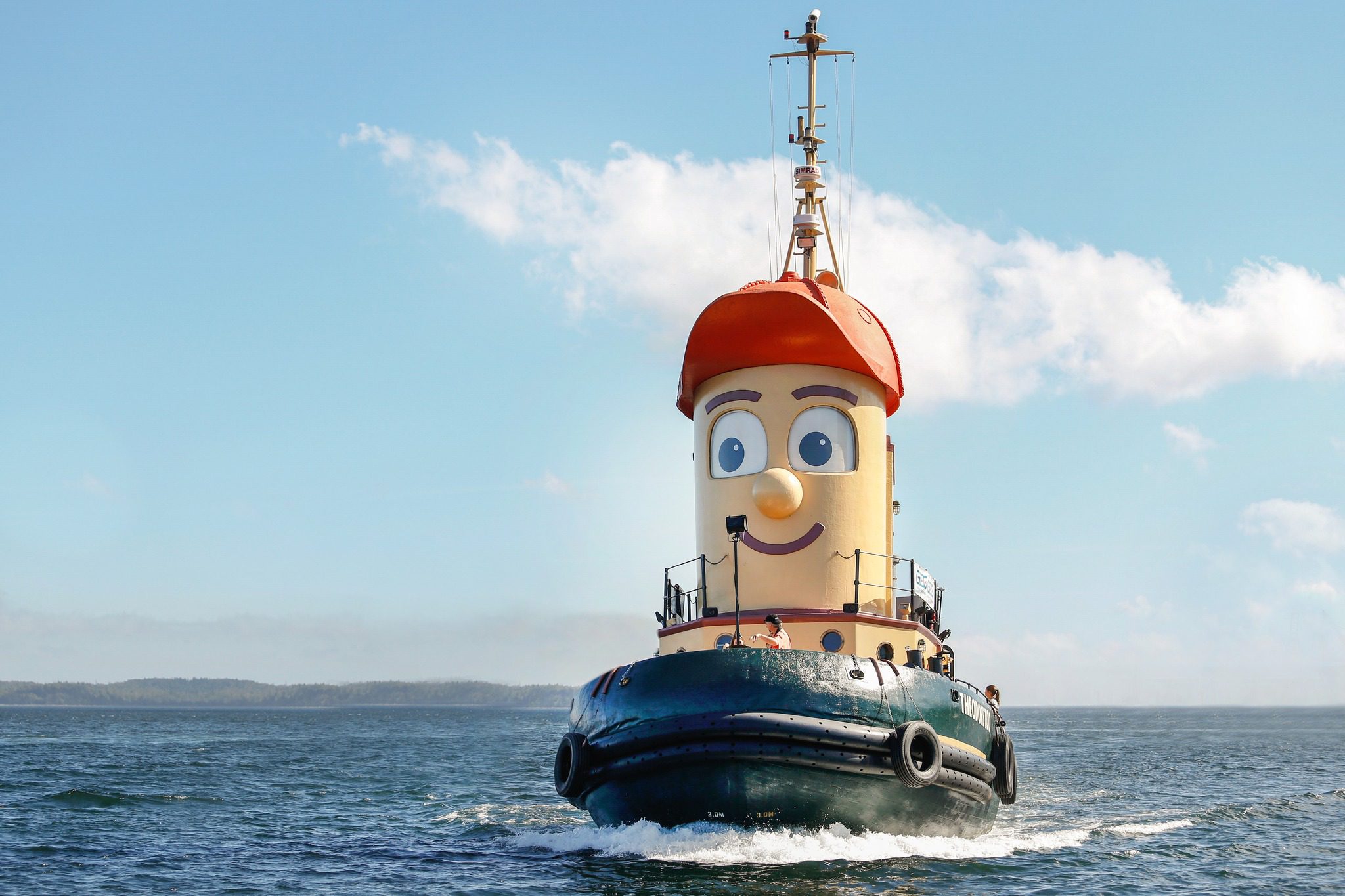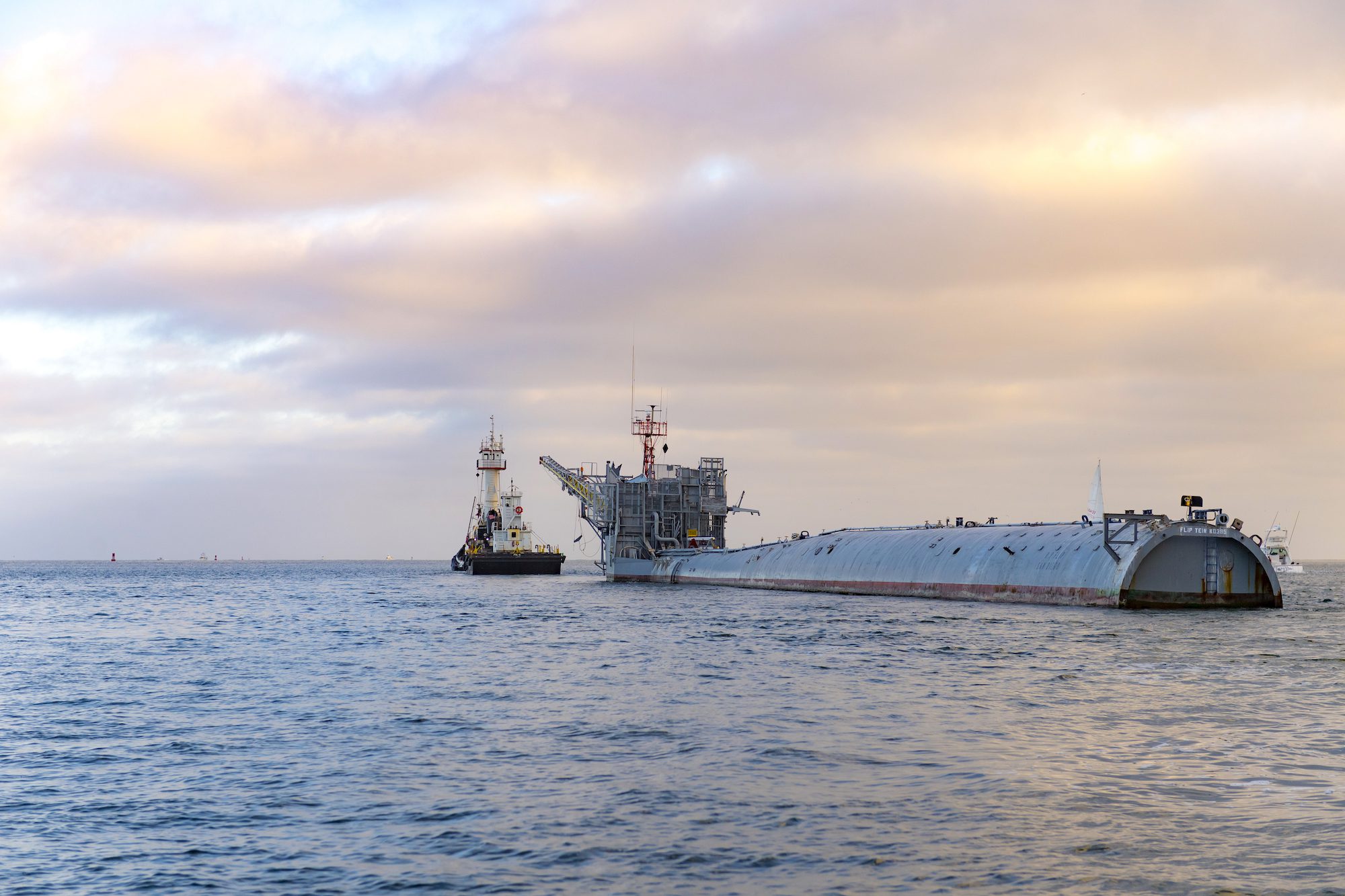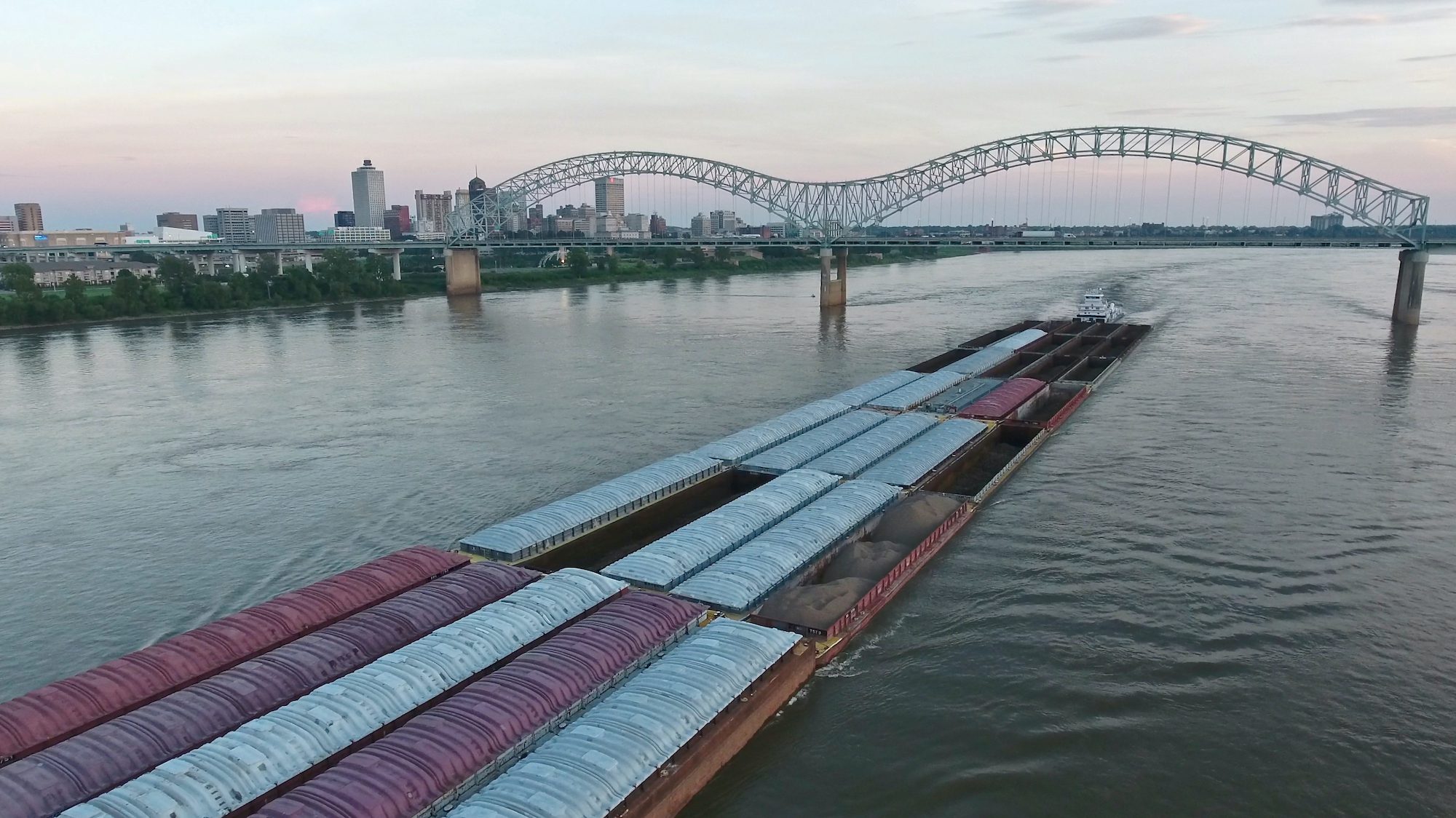By Mirette Magdy and Salma El Wardany (Bloomberg) — Villagers on the banks of the Suez Canal are getting used to their unusual new neighbor. It’s 400 meters long, carries about $1 billion and nobody knows when it’ll leave.
Towering above the low-rise red-brick homes, grazing buffalo and green farmland dotted with palm trees, the Ever Given stands like a monument to globalization marooned amid a typically Egyptian rural scene. And since the ship’s grounding last week brought one of the world’s busiest trade routes to a halt, residents have had rare front-row seats to an event whose outcome is key to the global economy.
“We’ve never had a ship stuck around here for a very long time,” said a local woman who asked to be called Fatma and has spent her life within earshot of the shipping horns. She gestured to the hulking Ever Given, in whose spotlights the local children have been playing hide-and-seek at night. “We’ve made friends with it already!”
As dredgers, tug boats and teams of engineers race to dislodge the ship, the inhabitants of the agricultural hinterlands north of Suez city are basking in the novelty. While some take selfies with the behemoth in the background or wave to the crew, others like Fatma daydream about what it was transporting to world markets.
“I need to get a bedroom and a saloon for my new house; I want it French-style!” she chuckled, casting a wistful look at the vessel laden with potentially thousands of red, blue and green containers.
The ships plying the waterway may come from all corners of the Earth, but for locals the 120-mile channel linking the Red Sea and Mediterranean that opened in 1869 is a source of Egyptian pride. As far back as the early second millennium BC, Pharaoh Senusret III is said to have established a predecessor connecting the seas using branches of the Nile River.
President Gamal Abdel-Nasser nationalized the canal in 1956, wresting it back from eight decades of British control and sparking an invasion by Israeli, British and France forces that failed, cementing his status as an inspirational Arab leader. Current head of state Abdel-Fattah El-Sisi oversaw an $8 billion expansion that opened in 2015 and sought to boost traffic and revenue.
With that initiative came stepped-up security. A fence erected in 2014 has blocked villagers from the canal’s edge, otherwise they say they might have befriended their temporary neighbors. Years ago when ships ran aground, villagers remember crew-members tossing sodas ashore to children.
For people like Mohammed Awad, 39, who was born in Ismailia, another of the canal’s three cities along with Port Said, the conduit has been a way of life for generations. He grew up fishing in the canal with his father, and his grandfather worked on a dredger that removed the wreckage of ships sunk during the 1973 Yom Kippur conflict with Israel.
The canal had been shut from 1967, when Arab countries and Israel fought the Six Day War, and was only re-opened in 1975. That was the last major closure, until now.
Like all those living by the canal interviewed for this story, Awad recalls the strong winds and sandstorm that turned the sky yellow and cut visibility on the day the Ever Given ran aground.
It’s an accident the state-run Suez Canal Authority says is losing it as much as $14 million a day. The canal generated $5.6 billion for the government last year, around 10% of its total revenue. Until a lengthy press briefing Saturday, authorities had released limited information about the event, and access to the site remains heavily restricted.
“I panicked when I first heard about the ship,” Awad said. “I know how important the canal is to all of us.”
By Mirette Magdy and Salma El Wardany. © 2021 Bloomberg

 Join The Club
Join The Club











